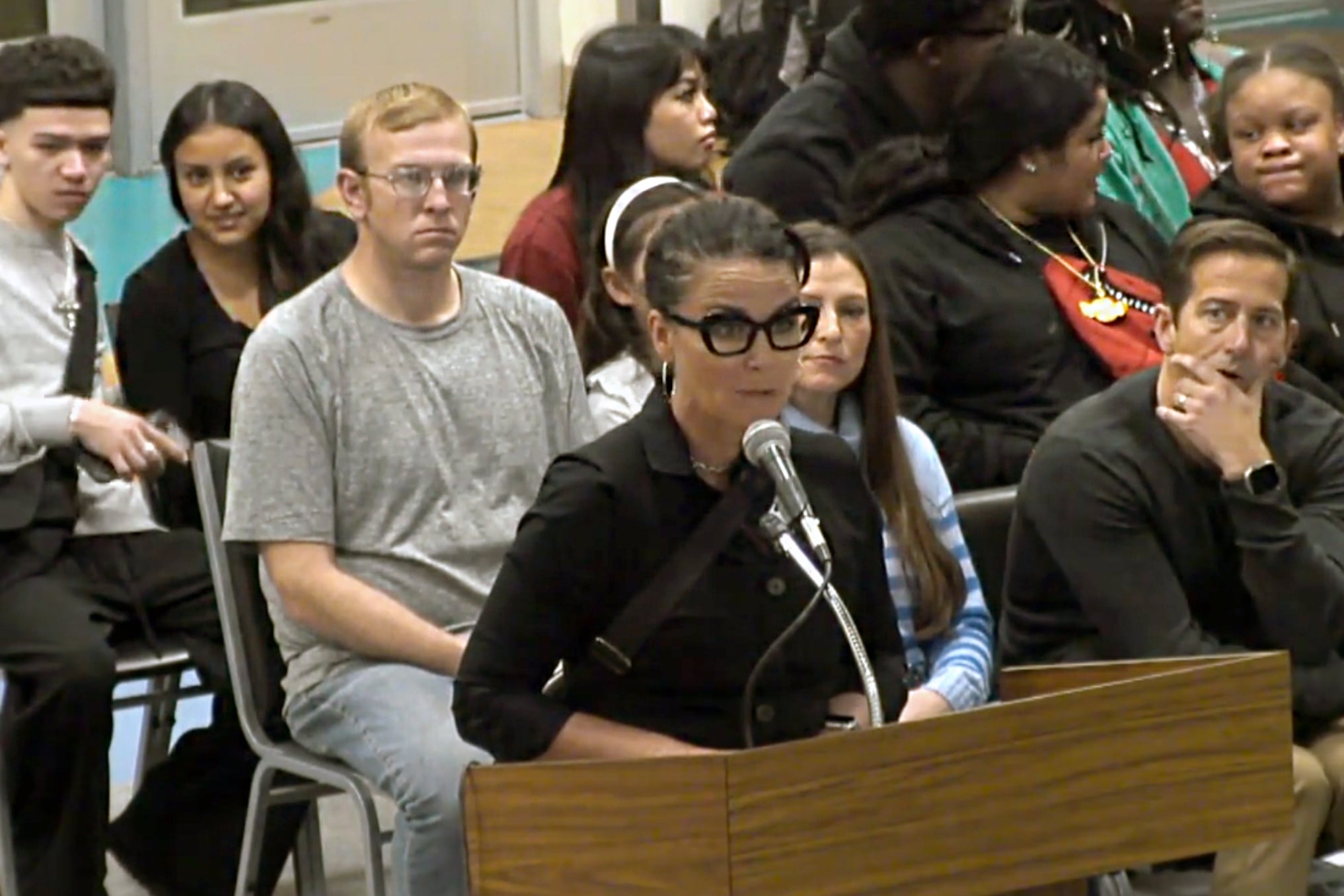Sign up for Chalkbeat Colorado’s free daily newsletter to get the latest reporting from us, plus curated news from other Colorado outlets, delivered to your inbox.
As part of the ongoing fallout from an investigation into the use of a seclusion room at Denver’s McAuliffe International School, the school district has barred an administrator responsible for overseeing the school from all district facilities and information systems.
The administrator is Colleen O’Brien, the executive director of the Northeast Denver Innovation Zone. She oversees three semi-autonomous Denver schools, including McAuliffe, a popular middle school that has been involved in several high-profile controversies this year.
Families and educators at McAuliffe have been on edge for months and staged a “walk in” Tuesday morning to protest what they see as Denver Public Schools’ attempts to dismantle their school. Principal Kurt Dennis was fired in July after he spoke up about gun violence and safety concerns, and the district opened an investigation into the improper use of seclusion rooms at McAuliffe in August. McAuliffe’s innovation status — which allows the school extra flexibility in scheduling and programming — is also up in the air right now.
The actions against O’Brien appear to be further fallout from the seclusion room investigation.
“After a thorough and careful review of the outcomes from the ongoing investigation, it has become clear that the actions and oversight under Dr. Colleen O’Brien have been in direct conflict with district policy and the values and standards we uphold in Denver Public Schools,” the district said in a statement Tuesday.
O’Brien did not respond Tuesday to phone calls and messages seeking comment.
Anne Rowe, the chairperson of the innovation zone’s board and a former president of the DPS school board, said in an interview that a district administrator informed O’Brien of the ban at a DPS school board meeting Monday. O’Brien was at the meeting to give public comment.
“What they’ve done has made it impossible for Colleen to do the work that she does really well to support our schools, our educators, and our kids,” Rowe said, “and we’re working really hard as a board to ensure that support continues until we find a resolution to this.”
It’s not clear which policies were the basis for the district’s action against O’Brien. O’Brien is an employee of the zone, not of DPS. Even if the district concludes that she violated DPS policy, she would not be subject to firing the same way as Dennis, the former principal.
“However,” the district said in its statement, “the schools within NDIZ are filled with DPS employees and students. Given the gravity of these findings, it was necessary to take appropriate action to limit Dr. O’Brien’s access to students and staff, as well as student information.”
Last year, DPS banned vocal district critic and school founder Brandon Pryor from DPS property, but a federal judge overturned that ban in January.
At the school board meeting Monday, O’Brien expressed concerns that McAuliffe educators were worried, wondering when the internal investigation would end. She also asked that DPS hire a third party instead to conduct an investigation.
Rowe said the zone board wants the same thing and “is in the process of engaging with an independent investigator” to look into the use of the seclusion rooms.
Rowe said DPS recently gave her and another zone board member a 2½-page summary of the investigation, which DPS says is ongoing. The summary said that the use of the seclusion rooms had violated district policy, Rowe said. She said it was clear that DPS wanted the zone board to take action regarding O’Brien based on the summary.
“We said, ‘Well, as a governing board, we would like to see the evidence and the facts that underlie this summary of findings from your internal investigation,’” Rowe said.
But ultimately, Rowe said DPS denied that request.
In its statement, DPS said its ban of O’Brien “does not reflect DPS’ view of (the zone) as a whole, but is a direct response to the actions and decisions of the individual in question.
“We remain committed to the principles of innovation and excellence in education and believe that this decision is a step towards upholding these ideals,” the statement said. “We look forward to future collaborations that align with our shared goals for educational excellence.”
Melanie Asmar is a senior reporter for Chalkbeat Colorado, covering Denver Public Schools. Contact Melanie at masmar@chalkbeat.org.







